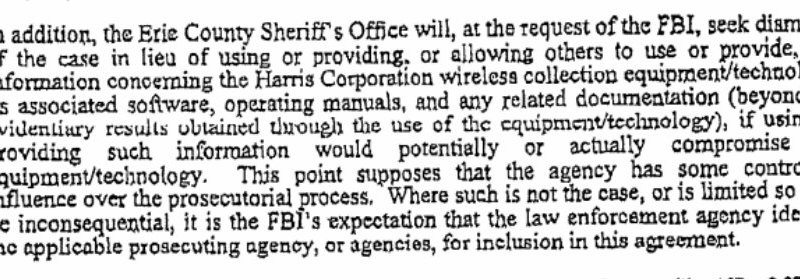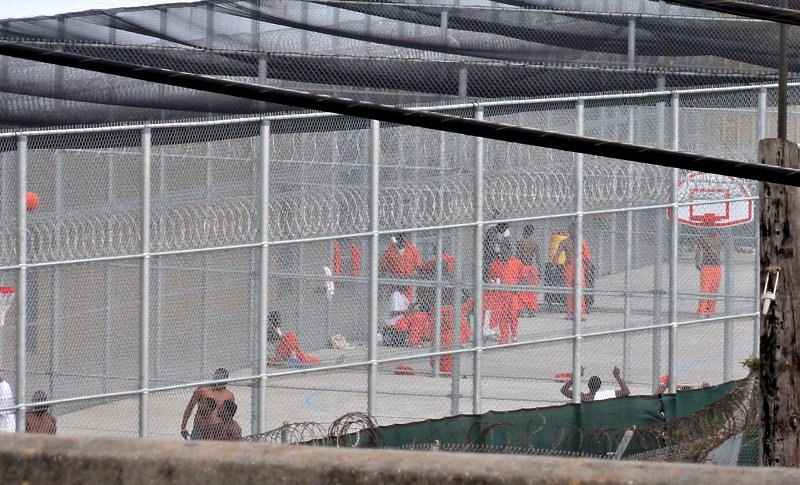-

FBI agents were warned against interviewing Allen Ginsberg, fearing it would result in “embarrassment”
Documents released to MuckRock indicate that Ginsberg first came to FBI attention in September 1963, nearly eight years after Ginsberg first performed “Howl” in a San Francisco art gallery and six years after Lawrence Ferlinghetti was acquitted of obscenity charges for publishing the poem.
-

Under “broken windows” policy, marijuana citations in New York rose a thousandfold
Statistics compiled by the New York Department of Criminal Justice Services on arrests related to marijuana indicate that despite successful legalization efforts in Colorado, Washington, and most recently, Alaska, prohibition in New York is in full swing.
-

“Juvenile editing” This American Life’s FCC complaint
Plenty of criticism has been lobbed at Ira Glass and his radio show “This American Life,” whose storytelling aesthetic has won scorn as well as a dedicated legions of fans. But in the past five years, only one person decided to gripe about it to the Federal Government.
-

Death at a Scientology-backed drug rehab center
Narconon is a Scientology-affiliated drug rehab program with multiple US and international locations, known for using unorthodox, non-medicinal detox methods. While the program insists that its treatment methods are sound and that it does not preach Scientology, law enforcement records concerning a facility in Oklahoma - which includes reports of three deaths - speaks to their opponent’s concerns.
-

FOIA-Side Chat Ep. 3: Plugging the Leak
Join Shawn and Beryl for the third installment of our ever-evolving FOIA-side chat series, where they spend an Earth Day afternoon discussing Beryl’s work with gas leaks in Massachusetts, and what you can do to help.
-

The anti-drone tech employed during the Boston Marathon
Ahead of the Boston Marathon on Monday, city officials were adamant: no drones along the route. Such a ban isn’t unprecedented, but the plan for keeping drones out of marathoners’ faces highlights the difficulty of spotting the damn things, much less taking them out. Naturally, the plan flirted with net guns.
-

Customs and Border Patrol can seize your smut
If you happen to find yourself crossing the US border with porn, self-made or otherwise, just know that US Customs and Border Protection is legally required to confiscate your naughty media.
-

Massachusetts, your officials aren’t protecting you from gas leaks.
All winter, MuckRock has been reporting on gas leaks in the state — specifically, that legislative measures taken to fix them and prevent their consequences will remain impotent if they aren’t utilized, or even just more widely known. That’s where you can help.
-

Drug Czar fields tough questions about Obama administration’s “Mixed Signals” regarding marijuana
A 2014 hearing shows the Office of National Drug Control Policy struggling to stick to its anti-marijuana message in light of widespread decriminalization and Colorado’s legalization.
-

FOIA-Side Chat Ep. 2: When Journalists Redact
Join Shawn and I for the second installment of our ever-evolving FOIA-side chat series, where we talk about missing memos, salacious PowerPoint slides, and when it becomes a reporter’s job to prevent information from being released.
-

Is It Alright for the Kids? The fight for The Perks of Being a Wallflower
When a parent in Connecticut read “The Perks of Being a Wallflower,” he found its descriptions of the high school experience “inappropriate.” Other parents felt that it was his request for its removal is what was really inappropriate.
-

The 2015 Tax Day anger read: offshore accounts
As you are no doubt aware, taxes are due today in the United States. And while shelling out thirty bucks so TurboTax will file your state return is bad enough, here’s Senate subcommittee hearing from 2012 entitled “Offshore Profit Shifting and the U.S. Tax Code” to really ruin your day.
-

How’s my Intelligence? The FBI’s customer satisfaction survey
As we mentioned last week, MuckRock user Evan Anderson recently received a cache of documents related to the Austin Regional Intelligence Center, providing invaluable insight into how the Federal government works with local law enforcement to wage the war on terror. Among these revelations: the FBI really wants a moment of your time to fill out this quick survey.
-

ICE can’t track down order to stop tracking license plates
Earlier this month, Immigration and Customs Enforcement posted a call for bids for database access to one of the existing nationwide networks of license plate readers. The next day, the ICE records team responded that they were unable to track down the order that top officials issued last year to scrap a similar proposal amid serious privacy concerns.
-

404 Democracy not found: Terminated .gov domain names
Back in December, MuckRock user Dean Triplett put in a request for all of the terminated .gov domains within the last ten years. Last week, the request came in, bringing with it a GeoCities-worthy cache of web 1.0. Warning: egregious use of frames and comic sans ahead.
-

Returning from abroad? Homeland Security can download the entire contents of your computer
Hundreds of thousands of travelers cross US borders every day. And none of them — save the precious few with diplomatic immunity — have any right to privacy, according to Department of Homeland Security documents recently obtained by MuckRock.
-

Full disclosure at last: lawsuit reveals unredacted StingRay NDA
Before they can deploy a StingRay cell phone tracker, state and local law enforcement must sign a non-disclosure agreement with the FBI. But the public did not know the precise terms of this NDA until yesterday, when the full six-page agreement was released in unredacted form as part of a lawsuit won by the New York Civil Liberties Union.
-

Broken equipment, shattered promises: For-profit prison healthcare
Incarceration does not prevent illness. It does, however, make it more difficult to advocate for appropriate treatment, and the lack of adequate medical care in private and public prisons alike is one of those issues of human decency also contributing to facilities’ inefficient operation and failure to rehabilitate its inmates. MuckRock wants to help you find out who and where.
-

Police in Texas regularly monitor social media - with no policies to limit its use
A casual email exchange between two police officials gives a rare look into the role that social media can play in modern policing. Barring restrictive privacy settings, there are few legal or practical limitations on monitoring an individual’s social media posts, or retaining such information for future investigations.
-

For Louisiana private prisons, lots of grievances but little detail
Winn Correctional Center, a Corrections Corporation of America facility in Louisiana, holds the dubious distinction of being the first privately-operated medium-security prison in the United States. It houses about 1,500 prisoners, which, coincidentally, is also about as many grievances it gets each year.
-

Title IX complaint index offers glimpse into enforcement
The federal Title IX program, which bars sex-based discrimination, is meant to have a wide ranging impact on any higher education institution campus that accepts money from the U.S. government. As seen in an index of complaints invoking the law just released by the Department of Education, the issue continues to hang over campuses across the country.
-

What the ATF could learn from “Bob’s Burgers”
While it might seem unlikely that Bob Belcher, the eponymous lovable loser voiced by H. Jon Benjamin on FOX’s Bob’s Burgers, would have much advice to lend federal law enforcement, audit findings released last week by the Justice Department’s inspector general suggest otherwise — at least when it comes to drones and the Bureau of Alcohol, Tobacco, Firearms and Explosives (ATF).